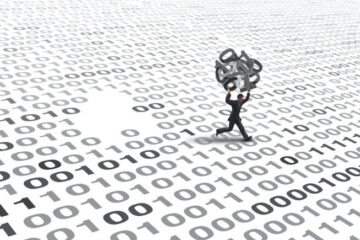Japanese biometrics firm NEC Corporation has launched a facial-recognition system specifically for identifying people wearing masks, which it claims is 99.9% accurate and takes less than one second for verification.
In a NEC blogpost from 24 September 2020, the company positioned its new facial-recognition engine, which was still in development at that point, as adapting to a “new normal” where face coverings have become a key protection against the spread of the Covid-19 coronavirus.
“Face recognition operates by extracting feature points, such as the position, shape and size of a subject’s eyes, nose and mouth, and matching and identifying detected faces. This engine focuses on areas surrounding an individual’s eyes that are not covered by masks to extract and analyse characteristics,” said the NEC blogpost.
“Once this engine detects the presence of a mask in a face image, the most appropriate facial-recognition algorithm is used to extract and check the characteristics of each individual. This enables high-precision certification even when there is a mix of mask wearers and non-wearers.”
It added the system was being trialled within the NEC’s headquarters, and further positioned it as a way of helping to “promote public health” that can be used in “entry and exit systems for companies, educational institutions, public facilities, commercial facilities, event venues and theme parks”.
Assistant manager of NEC’s digital platform division, Shinya Takashima, told Reuters the system went on sale in October, and that customers so far include the likes of Lufthansa and Swiss International Airlines.
“Touchless verification has become extremely important due to the impact of the coronavirus,” he added. “We hope to contribute to safety and peace of mind by strengthening [efforts] in that area.”
Potential use by law enforcement
Tech giants Amazon, Microsoft and IBM all agreed in June 2020 to halt sales of their respective facial-recognition technologies to US law enforcement agencies, following international backlash over the police killing of George Floyd in Minneapolis on 25 May 2020.
However, a number of notable suppliers, including NEC and controversial startup Clearview AI, said they will continue to serve US law enforcement despite increased market scrutiny.
In the UK, both South Wales Police (SWP) and the Metropolitan Police Service (MPS) use NEC’s NeoFace Live Facial Recognition to compare faces in a crowd with those on a watchlist.
The SWP was asked by Computer Weekly if it is considering deploying solutions that circumvent people’s use of face masks, whether from NEC or elsewhere, but failed to respond by time of publication.
SWP has already used facial recognition to monitor football matches as well as protesters outside an arms fair in Cardiff, but in August 2020 its use of the technology was deemed unlawful in the Court of Appeals.
According to the judgment, the decision was made on the grounds that SWP’s use of the technology was “not in accordance” with the defendants Article 8 privacy rights; that it did not conduct an appropriate Data Protection Impact Assessment (DPIA); and that it did not comply with its Public Sector Equality Duty (PSED) to consider how its policies and practices could be discriminatory.
The MPS, which has been deploying LFR operationally since January 2020, was also asked whether it would be deploying mask-circumventing facial-recognition technology, but similarly failed to respond by time of publication.
The MPS, Computer Weekly reported in March 2020, is already involved with a facial-recognition project to identify people with hidden faces, known as face matching for automatic identity retrieval, recognition, verification and management (or FACER2VM), which is being carried out in partnership with UK universities and the Home Office.
According to the project’s website, it will “develop unconstrained face recognition” with the goal of delivering a “step change” in the technology and making it “ubiquitous” by 2020.
While the MPS confirmed its involvement in the project at the time, it said no technology developed by the project had been introduced yet.
Since the start of the pandemic, a slew of other biometric companies from across the globe have been busy updating their facial-recognition algorithms to identify people with hidden faces, also in response to the sudden and widespread adoption of masks.


